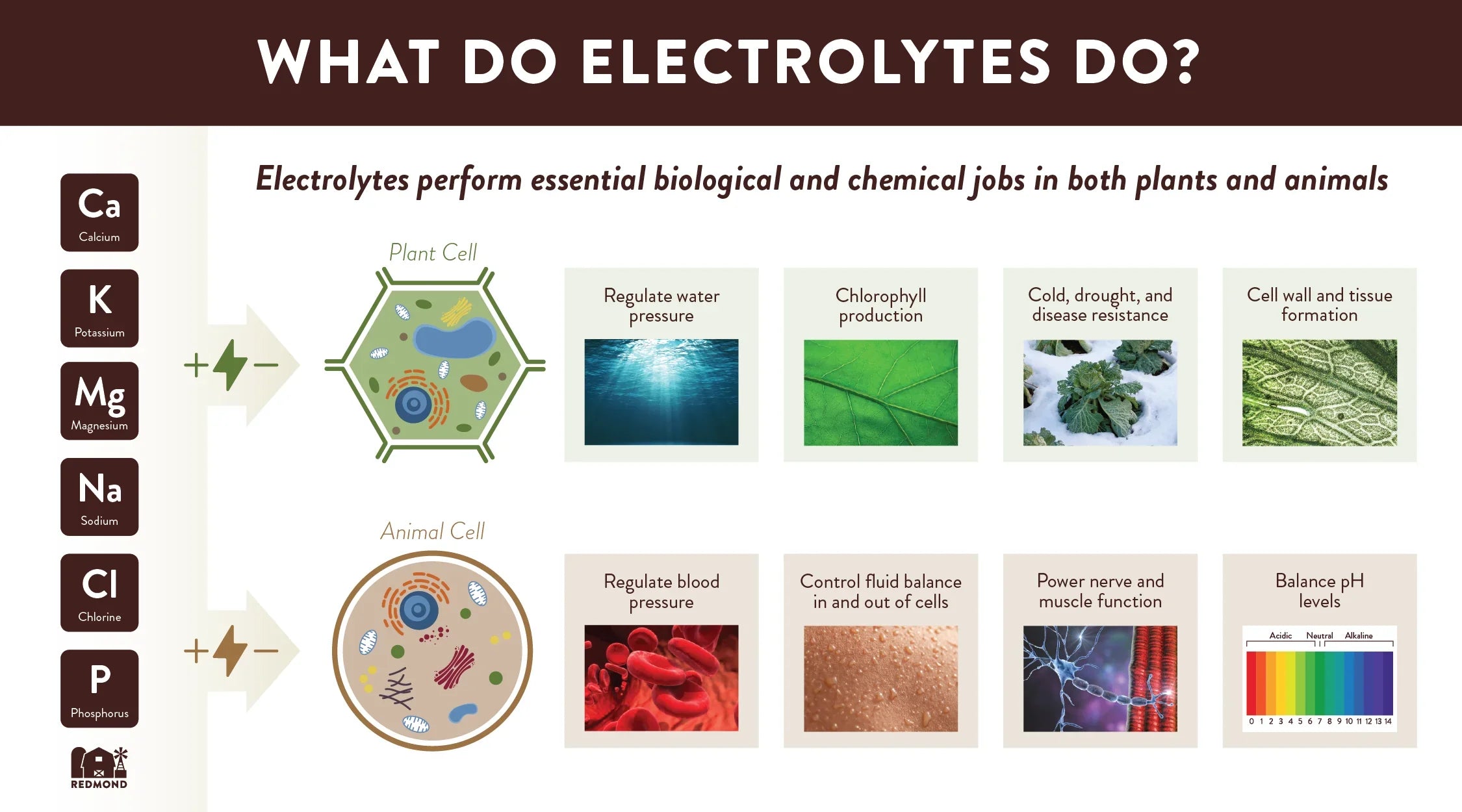Why Daily Electrolyte Support Is Non-Negotiable for Optimal Health
What Are Electrolytes, Really?
Electrolytes are electrically charged minerals that are essential to life itself. Sodium, potassium, magnesium, and calcium are the most commonly known, and they play vital roles in nearly every biological function:
-
Regulating hydration levels
-
Supporting muscle contraction and relaxation
-
Balancing blood pressure
-
Maintaining nerve function and signaling
Every time you sweat, breathe, urinate, or simply live, you’re losing electrolytes. Without replenishing them, your body’s internal systems begin to falter, sometimes in ways that go unnoticed—until fatigue, cramps, or brain fog sets in.
Why Supplementing Electrolytes Matters Today
In a perfect world, we’d get all our electrolytes from food and water. But modern life doesn’t work like that:
-
Filtered and bottled water often strips away natural minerals.
-
Highly processed diets don’t deliver the trace minerals your body needs.
-
Sweat-heavy workouts, saunas, and even caffeine or alcohol accelerate electrolyte loss.
-
Low-carb or fasting regimens can deplete sodium and potassium rapidly.
That’s where supplementation becomes not just helpful—but critical.
Clinical research consistently supports the importance of maintaining electrolyte balance. For example, a 2019 study published in Nutrients showed that inadequate sodium intake can impair cognitive performance and physical endurance in active adults.
The Iron Age Approach: Backed by Nature, Balanced by Design
Our electrolyte formula is engineered to match the body's natural needs—not marketing trends. We prioritize bioavailable sources and optimal ratios, ensuring every mineral actually gets absorbed and used where it matters.
Why Celtic Sea Salt?
We source our sodium from mineral-rich Celtic sea salt—not just for flavor, but for function. This salt contains over 72 trace minerals that support proper hydration, muscle coordination, and cellular communication. Unlike standard table salt, it's unprocessed and alkaline-forming.
A growing body of research indicates that natural sea salts can help maintain electrolyte levels without burdening the kidneys or raising blood pressure in the same way as highly refined sodium chloride.
Signs You're Running Low on Electrolytes
You don’t have to be an athlete to feel the effects of an imbalance. Watch for:
-
Headaches or migraines
-
Muscle cramps or weakness
-
Brain fog or lack of focus
-
Low energy despite adequate sleep
-
Dizziness or heart palpitations
If these sound familiar, your body is waving a white flag for mineral support.
Electrolytes for Every Lifestyle
Whether you're a high-performance athlete, a weekend warrior, or just trying to get through the workday with clarity, your electrolyte needs are real and recurring. Unlike sugar-laden sports drinks or cheap salt tablets, our formula gives your body exactly what it’s asking for—without the junk.
Why Choose Iron Age Electrolytes?
-
Sourced from nature, not a lab
-
Formulated for rapid absorption
-
Zero sugar, zero fillers, all function
-
Backed by data and clinical research
Final Word: Hydration Is More Than Water
Water alone isn’t enough. In fact, drinking too much plain water can dilute your electrolytes and make symptoms worse. The key is balance.
At Iron Age, we believe optimal health is earned, not gifted. That’s why we built our electrolyte products to work as hard as you do.
Ready to reclaim your vitality? Shop our electrolytes now and feel the difference your body was built for.
References:
-
Institute of Medicine (US) Panel on Dietary Reference Intakes. Dietary Reference Intakes for Water, Potassium, Sodium, Chloride, and Sulfate. National Academies Press; 2005.
-
Maughan RJ, Shirreffs SM. Hydration and performance. Nutrition Bulletin. 2012.
-
Moritz ML, Ayus JC. Electrolyte Disorders in the Emergency Room: A Review. New England Journal of Medicine. 2017.
-
Jain N, Bhatia H, et al. Trace elements in sea salts and their health benefits. International Journal of Medical Science and Public Health. 2020.


Share:
Is Stevia Bad for You? What the Science Really Says
Why more salt is better: